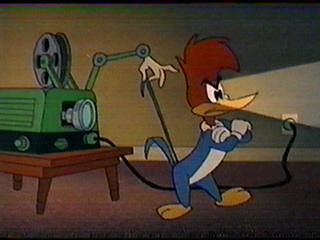World's Dumbest Branding Move
 Readers of this blog will not be surprised to learn that I'm not entirely enthusiastic about the ability of some marketing groups to support the sales effort. One of marketing's most important tasks is to create brand names that help drive sales. Sometimes this works, sometimes it's a wash, and sometimes branding makes selling damn near impossible.
Readers of this blog will not be surprised to learn that I'm not entirely enthusiastic about the ability of some marketing groups to support the sales effort. One of marketing's most important tasks is to create brand names that help drive sales. Sometimes this works, sometimes it's a wash, and sometimes branding makes selling damn near impossible.
I've encountered some truly lousy branding decisions in my own career. For example, a while back, when France's Group Bull tried to break into the U.S. computer market by purchasing the ailing Honeywell Information Systems, a new brand name was needed for the combined company. Marketing rounded up the usual focus groups and decided to build on Groupe Bull's existing brand name equity. They named the merged entity "Bull Worldwide Information Systems." I remember having a drink with a top Honeywell sales rep after the decision had been announced. "Oh, that's just lovely," he said, after taking a long pull at his beer, "Now I can go to a customer meeting and say 'Hi! I'm the man from Bull W.I.S.'"
That decision was pretty lame, but in my experience the absolute dumbest branding move came from Panasonic back in the 90s. When the company released a PC for the home market in Japan, they wanted a mascot to show that their PC was friendly, cute and approachable. The marketing team therefore secured the rights to use a character who, like Jerry Lewis in France, is more loved abroad than here at home. That character was (guess who!): Woody Woodpecker.
Yes, Panasonic named its new PC "The Woody," and to make matters worse, decided to differentiate it from the competition by emphasizing a touch screen capability, named (wait for it--) "Touch Woody." The day before the product was announced in Tokyo, an American woman working for the company let the marketing team know why foreign journalists kept snickering during the pre-release briefing.
It was too late to change the "Woody" name, but Panasonic executives did manage to change "Touch Woody" to "Woody Touch Screen" in the announcement materials. Just to be safe, though, the marketing group decided last minute to emphasize a different feature: the automated online support capability named (I kid you not) "Internet Pecker."
True story.